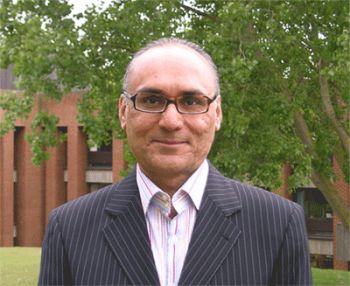Dental x-ray link to thyroid cancer
By: Alison Field
Last updated: Wednesday, 16 June 2010

Dr Anjum Memon from BSMS
Multiple exposures to dental x-rays may be associated with an increased risk of developing thyroid cancer, according to new research from BSMS.
The thyroid gland is situated in the neck and is known to be highly sensitive to ionising radiation from x-rays.
A collaborative research team from the Brighton and Sussex Medical School (BSMS), Cambridge and Kuwait studied 313 thyroid cancer patients in Kuwait - where dental treatment is free and where the incidence of thyroid cancer is relatively high compared to Britain.
The study, led by Dr Anjum Memon - Senior Lecturer and Consultant in Public Health Medicine at BSMS - showed that the risk of thyroid cancer increased with exposure to multiple, low-dose dental x-rays.
Dr Memon said the findings were consistent with previous reports of increased risk of thyroid cancer in dentists, dental assistants and x-ray workers.
He said: "The public-health and clinical implications of these findings are particularly relevant in the light of increases in the incidence of thyroid cancer in many countries over the past 30 years.
"The notion that low-dose radiation exposure through dental radiography is absolutely safe needs to be investigated further, as the proportion of the population exposed is high.
"Our study highlights the concern that, like chest (or other upper-body) x-rays, dental x-rays should be prescribed when the patient has a specific clinical need, and not as part of routine check-up or when registering with a dentist."
Dr Memon said dental x-rays have also been associated with an increased risk of brain tumours and tumours in the salivary gland.
The researchers said their results should be treated with caution because comprehensive, historical dental x-ray records were not available and the data were based on self-reporting by the participants.
The scientists, whose findings were published in Acta Oncologica, called for further studies using historical dental x-ray records.
Dr Memon said: "It is important that our study is repeated with information from dental records - including frequency of x-rays, age and dose at exposure."

